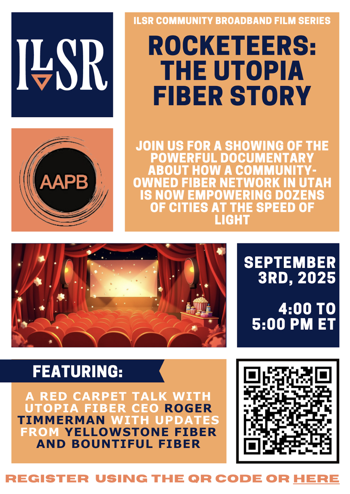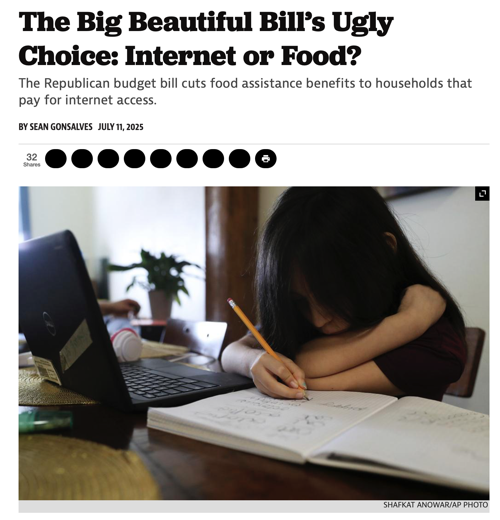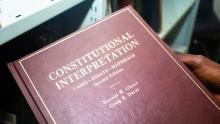Community Broadband Film Series Returns, Hosted by ILSR and AAPB
The second installment in the ongoing Community Broadband Film Series spotlights “Rocketeers: The UTOPIA Fiber Story” – an eye-opening documentary that tells the story of how a publicly-owned fiber network has ignited local Internet choice and competition across dozens of cities, delivering connectivity at the speed of light.
Hosted by ILSR’s Community Broadband Networks Initiative and the American Association for Public Broadband (AAPB), the screening will be streamed to a live audience on September 3 at 4pm ET.
Register now for the virtual event here.

The event will begin with a screening of the 24-minute film and then treat attendees to a live Red Carpet discussion with UTOPIA Fiber CEO Roger Timmerman and key leaders of two communities that are now part of the fast growing UTOPIA network – Sid Boswell, CEO of Yellowstone Fiber in Bozeman, Montana; and Bountiful, Utah Councilmember Kate Bradshaw.
The discussion will be moderated by AAPB Executive Director Gigi Sohn and ILSR’s own Sean Gonsalves, the Community Broadband Network team’s Associate Director for Communications.
On the virtual red carpet, the special guests will dive into UTOPIA Fiber's open-access journey and the network of people bringing future-proof connectivity and local Internet choice to thousands of homes and businesses.
Bring your popcorn and join us for another exciting showcase of how local communities are seizing control of their digital futures.














